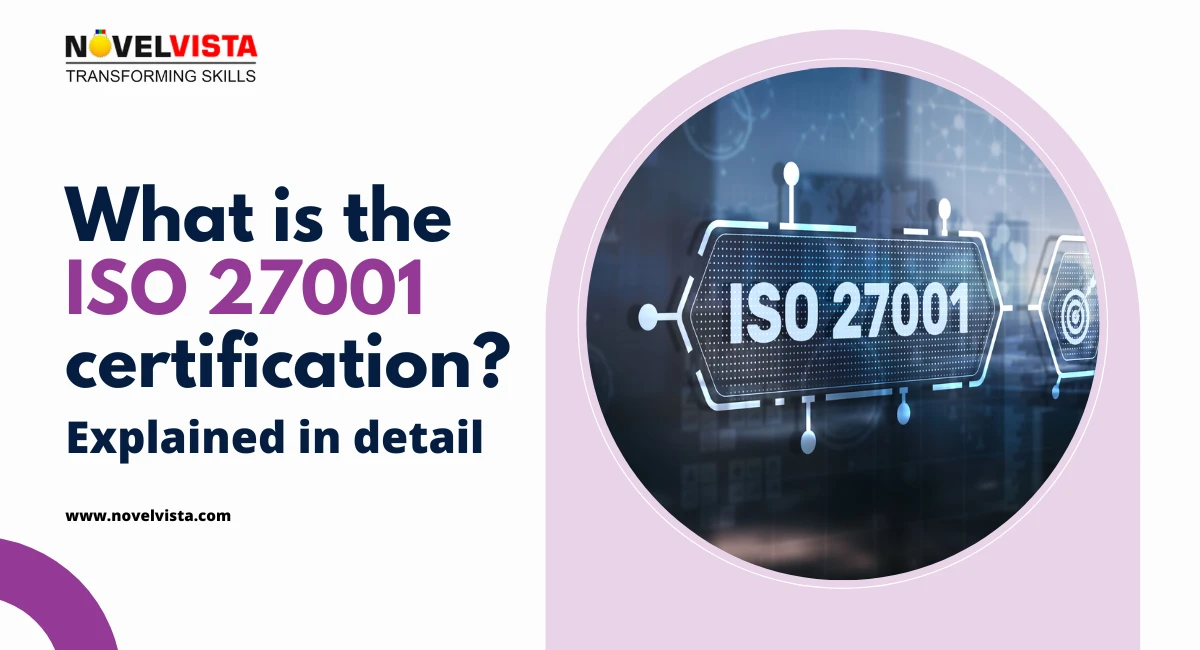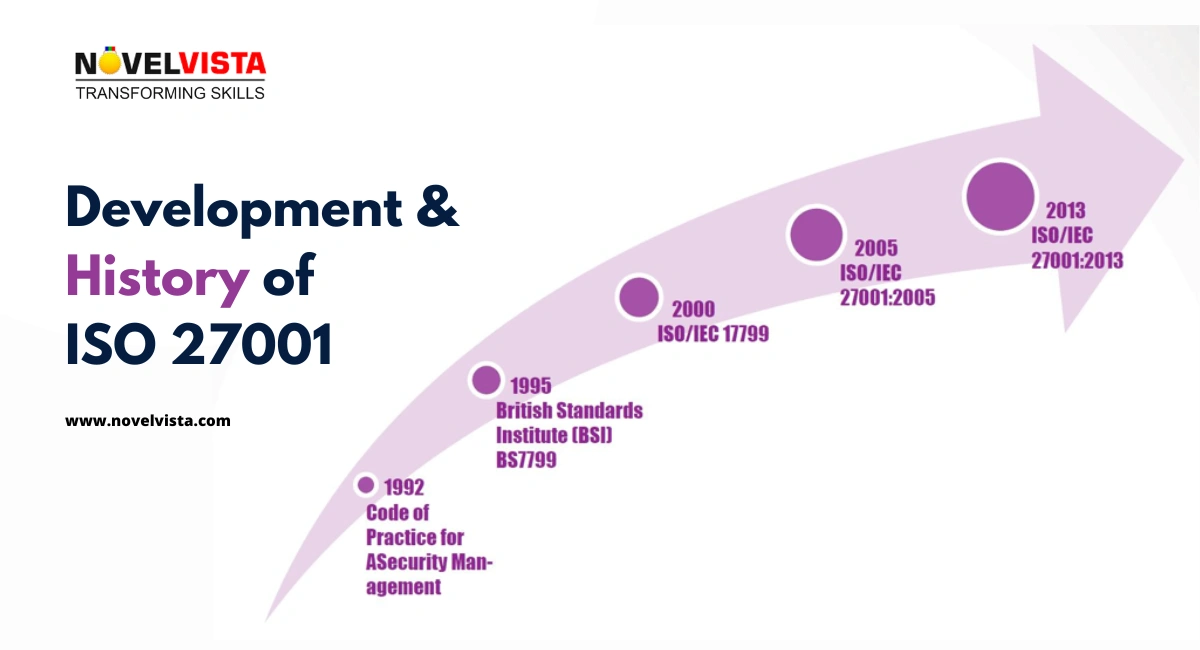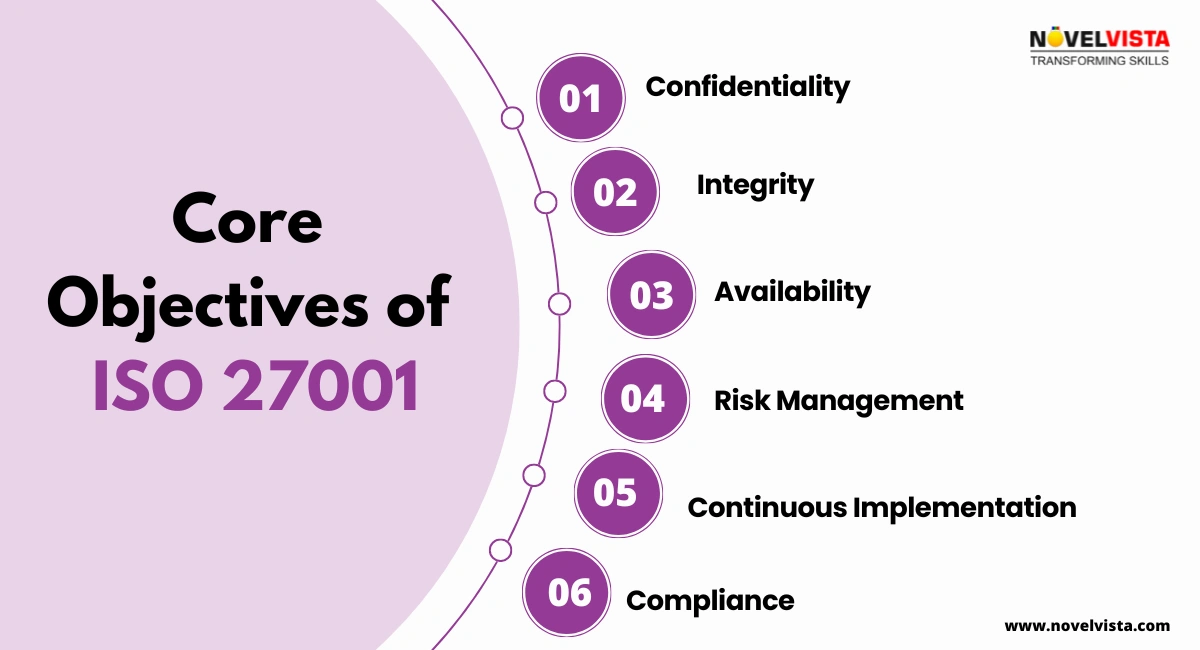Enroll Now and Get Upto 30% Off
* Your personal details are for internal use only and will remain confidential.

Last updated 11/11/2024

The leading standard for Information Security Management Systems(ISMS), ISO 27001, is an excellent certification specifically designed to help businesses systematically organize and protect sensitive information more cost-effectively.
This certification validates an organization's commitment to information security through risk assessment policies and controls, which are validated by an independent auditor.
In this blog, we will learn everything about the ISO 27001:2022 certification, like its critical components, the general certification process, the significant benefits and what challenges might come the way with their appropriate solutions. By the end of this blog, one will be equipped with all the information about this certificate.
ISO 27001 accreditation is a worldwide recognized standard for creating, implementing, maintaining and constantly upgrading an Information Security Management System (ISMS). It provides organizations with a framework for securely managing sensitive information, assuring confidentiality, integrity and availability.
The certification procedure consists of two central audits: a Stage 1 audit, which checks paperwork and a Stage 2 audit, which evaluates the ISMS's actual implementation. Successful certification confirms ISO 27001 compliance and builds trust with clients and stakeholders while also assisting in regulatory compliance, such as GDPR.
Development and History of ISO 27001

The first international standard of ISMS was published in 2005. The development of this standard can be traced back to the British Standards BS7799. This earlier standard was introduced by the BSI group in 1995. The groups created it with the emerging need for practical information security.

The ISO 27001:2022 certification is a great international standard that helps businesses outline the requirements for the establishment, implementation, maintenance and continuous improvement of Information Security Management Systems (ISMS). This standard's main focus is to ensure the confidentiality, integrity and availability of sensitive information. The major objectives of ISO 27001 are as follows.
This ensures that the information is not being altered or destroyed at any stage of the process. This also prevents the unauthorized destruction of data that is important to a business.
ISO 27001 is an important standard as it primarily focuses on enhancing the overall business security and establishing trust with the customers. The following are a few of the benefits one can attain from implementing ISMS’s ISO 27001 standard.
How does ISO 27001 impact business operations? The answer comes with various benefits. Implementing these standards not only enhances the data security of business information but also vastly helps with risk mitigation. Security breaches are immediately identified and proper actions are taken before there is any loss involved.
Customers will more prominently place their trust and support in an ISO 27001-certified business. Trust is an important part of any business for customer retention and overall growth.
Every process has some set of issues. Given below are some challenges that come in the way of achieving an ISO 27001 certificate along with the appropriate solutions.
The standard of ISO 27001 certification requires the joint effort of time, money and personnel to succeed. Small-scale businesses often struggle to allocate these resources properly. To overcome this challenge
At the pace this world is evolving continuously, upgradation has become critical. Continuous monitoring is as important as any other process of the business. But maintaining this pace can turn out to be difficult sometimes.
A major challenge faced after implementing this standard is the organizational culture shift for the employees. Sometimes employees may even resist the change. To prevent this
To conclude, we can see how rapidly the digital industry is evolving. Along with the advancement in these technologies, the risk of security breaches is getting higher each day. The importance of safeguarding critical information cannot be emphasized enough. Besides protecting data, the certification fosters a sense of customer loyalty and a culture of continuous improvement.
NovelVista's ISO 27001 certification allows one to prevent unwanted data breaches while enhancing their business workflow. In short, ISO 27001 is not just a certificate but a strategic investment in the bright future of your business, ensuring resilience in this complicated world.
Thank you for reading!
Topic Related PostVikas is an Accredited SIAM, ITIL 4 Master, PRINCE2 Agile, DevOps, and ITAM Trainer with more than 20 years of industry experience currently working with NovelVista as Principal Consultant.
* Your personal details are for internal use only and will remain confidential.